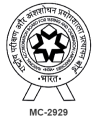Frequently Asked Questions
How should I prepare for my delivery at the hospital?
Preparing for delivery involves planning ahead to make sure you feel comfortable and prepared when the time arrives. We recommend packing essential items like identification card, insurance information, current medical prescription, medical reports, comfortable clothing, toiletries, and any personal items that help you feel at ease. Our team will also provide you with a list of things you may need for yourself and your newborn. If you have any special requirements, please let us know in advance so we can accommodate them.
What should I bring with me for my gynecological surgery?
For gynecological surgery, you’ll need to bring identification card, insurance information, and a list of any medications you currently take. Comfortable clothing, a robe, and slippers are helpful for your post-surgery comfort. Avoid bringing valuables to the hospital. You’ll also receive specific pre-operative instructions from our surgical team to ensure that you are fully prepared for your procedure.
What happens during a C-section (Cesarean) delivery?
A C-section is a surgical procedure to safely deliver your baby if vaginal delivery is not possible or safe. During a C-section, an incision is made in the abdomen and uterus to deliver the baby. The procedure is typically completed within an hour. Throughout the C-section, our experienced surgeons will be there to ensure both you and your baby are safe and well-cared for, answering any questions you may have along the way.
How long does a gynecological surgery typically take?
The length of gynecological surgeries varies depending on the type of procedure. For example, minimally invasive surgeries like laparoscopies may take 1-2 hours, while more complex surgeries might take longer. Our surgeon will discuss the expected duration of your specific surgery and answer any questions so that you feel fully prepared and informed about the procedure.
What should I expect during recovery after childbirth?
Recovery after childbirth differs from person to person. For vaginal births, most women can expect to stay in the hospital for 1-2 days, while those who have a C-section may stay slightly longer. Common experiences include soreness, fatigue, and changes in mood, which are normal and should improve over time. Our team will provide guidance on postpartum care, pain management, and breastfeeding support to make your recovery as comfortable as possible.
When can I return to normal activities after gynecological surgery?
Your recovery timeline will depend on the specific type of surgery performed. Generally, patients can resume light activities within a few days to a week, but complete recovery may take a few weeks. Our doctor will provide detailed instructions about when it’s safe to return to normal activities, including work and exercise, to support a smooth and healthy recovery.
What are the potential risks associated with gynecological surgery?
Like any surgery, gynecological procedures carry some risks, including infection, bleeding, and reactions to anesthesia. Minimally invasive techniques are often used to reduce these risks. Our team will take every precaution to ensure your safety and will be available to answer any questions or concerns you may have. You’ll also be provided with guidance on how to monitor for any signs of complications during your recovery.
What are the benefits of minimally invasive gynecological procedures?
Minimally invasive gynecological procedures, such as laparoscopy, offer several benefits including smaller incisions, less discomfort, shorter hospital stays, and quicker recovery times. These procedures are often preferred when possible, as they allow patients to resume normal activities more quickly than traditional open surgeries. Our doctor will discuss the most suitable surgical options for your specific condition.
Will I need follow-up appointments after my procedure or delivery?
Yes, follow-up appointments are an essential part of your care to ensure you are healing well and to monitor for any potential complications. For new mothers, postpartum check-ups help assess both your physical and emotional recovery. If you've undergone a surgical procedure, follow-up visits allow our surgeon to track your progress and provide any additional support needed for a smooth recovery.



